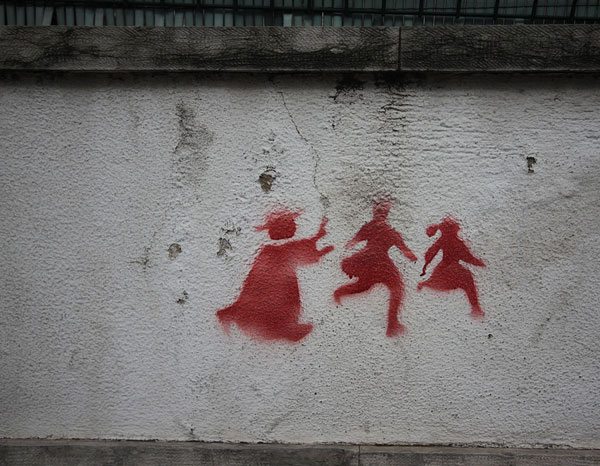
May 18, 2018; Crux
Since the sex abuse scandal in the Catholic Church broke in 2004, the Vatican has struggled with how to respond. This week, Pope Francis was given an opportunity to set a clear example of moral leadership when 34 bishops, representing the entire bishopric of Chile, offered to resign en masse.
The statement from the bishops, three of whom are retired, said that they placed their futures “in the hands of the Holy Father so that he might freely decide for each one of us.”
Chile is in the spotlight at the moment because of a recent investigation into the behavior of Bishop Juan Barros, whom Francis promoted in 2015. Bishop Barros has been accused of covering up for his mentor Father Fernando Karadima, who had been found guilty of sexually abusing minors. The Pope initially defended Barros, but later admitted this was a “grave error.” Two priests were sent to Chile to interview victims, and they returned with a 2,300-page report, prompting Francis to invite the Chilean bishops to the Vatican for a “frank discernment regarding the serious events which have damaged the ecclesial communion and undermined the work of the Church in Chile in recent years.”
Juan Carlos Cruz, one of the abuse victims, wrote to Francis in 2015, saying, “Please Holy Father, don’t be like the others. There are so many of us who despite everything think that you can do something. I treasure my faith, it’s what sustains me, but it is slipping away from me.”
The pope accused the Chilean bishops of “grave negligence” and of not having the “mettle to assume as a body this reality in which we are all involved, first of all myself, and that no one can be exempted from by putting the problem on someone else’s shoulders.”
Inés San Martín writes in the Catholic outlet Crux,
[Francis] also writes of being “perplexed and shamed” by witnesses who testified that those responsible for the criminal process were pressured from above and that compromising documents were destroyed, which shows a complete disregard of the canonical process.
Sign up for our free newsletters
Subscribe to NPQ's newsletters to have our top stories delivered directly to your inbox.
By signing up, you agree to our privacy policy and terms of use, and to receive messages from NPQ and our partners.
This behavior, destroying evidence and suppressing reports, categorized the Church’s response to the sex scandal from the start, and magnified the problem even beyond the immediate crimes. Even Francis has been accused of having a “blind spot” when it comes to sexual abuse. Ross Douthat wrote in 2015,
The reason the sex abuse issue was a crisis for the church rather than just a scandal was that it exposed systemic failures of governance within the Catholic hierarchy, systemic culpability on the part of the episcopate, and neither Rome nor the bishops themselves seemed to have any kind of response that wasn’t ad hoc, situational, and self-protective.
James E. Post reported for NPQ in 2004,
The Church’s own research, published in 2004, confirmed that credible allegations of sexual abuse were filed against 4,399 priests over several decades. Across the country, more than 10,000 victims of abuse were identified in church records. These data are likely underreported according to the researchers, painting a picture of widespread abuse that is dark and forbidding.
Francis has responded more compassionately to the crisis than his predecessor Pope Benedict XVI, but victims still have not yet seen major, decisive action on the Church’s part to acknowledge the extent of the problem. Tara Isabella Burton wrote that the Chilean bishops’ offer of resignation is “unprecedented” and “the most significant formal acceptance of responsibility for abuse by members of the church hierarchy anywhere in the world.”
As of now, it’s unclear what will happen to the bishops, or whether Francis will even accept their resignations. Edward Pentin of the National Catholic Register predicts that the four bishops who made up Karadima’s inner circle and presumably knew about the abuse will be allowed to resign, and the rest will remain in their posts. The bishops wrote in their letter that if their resignations were not accepted, they would continue to help repair the damage and do pastoral work in the church. Pentin said that a senior Church figure “cautioned that the events of today could pose serious problems for episcopacies worldwide if whole bishops’ conference were similarly ‘told to pack their bags and go.’” Patsy McGarry at the Irish Times reports that former president Mary McAleese said the Irish bishops considered a similar move, though ultimately only a few men resigned. It’s hard to deny there would be a huge logistical problem if an entire layer of the Church hierarchy were to resign at once.
But that matter of practical inconvenience pales in comparison to the opportunity Pope Francis has to make a meaningful gesture of responsibility to the victims. Some of his statements indicate that he recognizes this; he wrote that removing those in authority “must be done, but it’s not enough, we must go further.” That’s encouraging, but it’s vague, and he has not yet informed the public whether he will accept the bishops’ resignation.
José Andrés Murillo, another victim, said Pope Francis should accept the offer because “they all deserve to go.”—Erin Rubin













